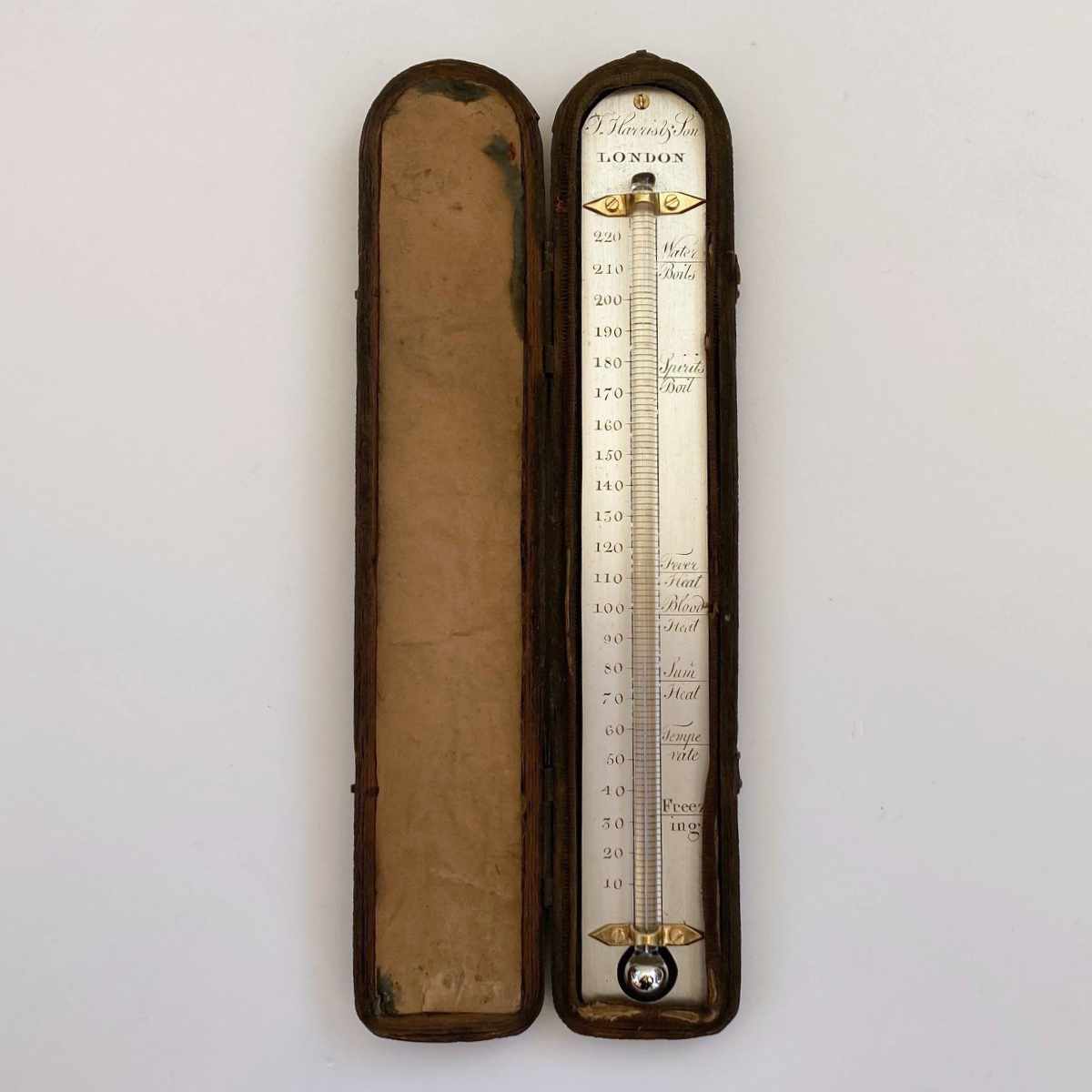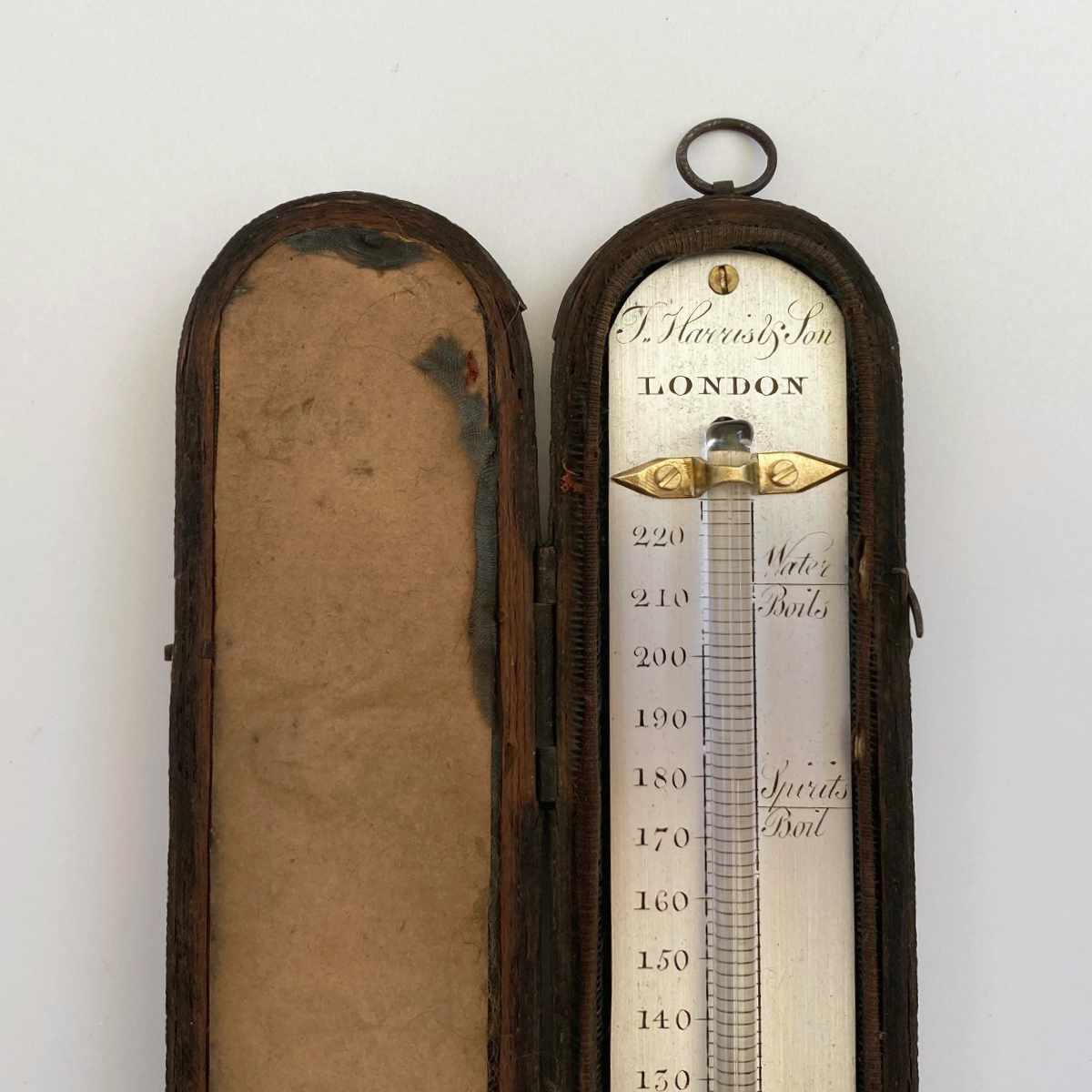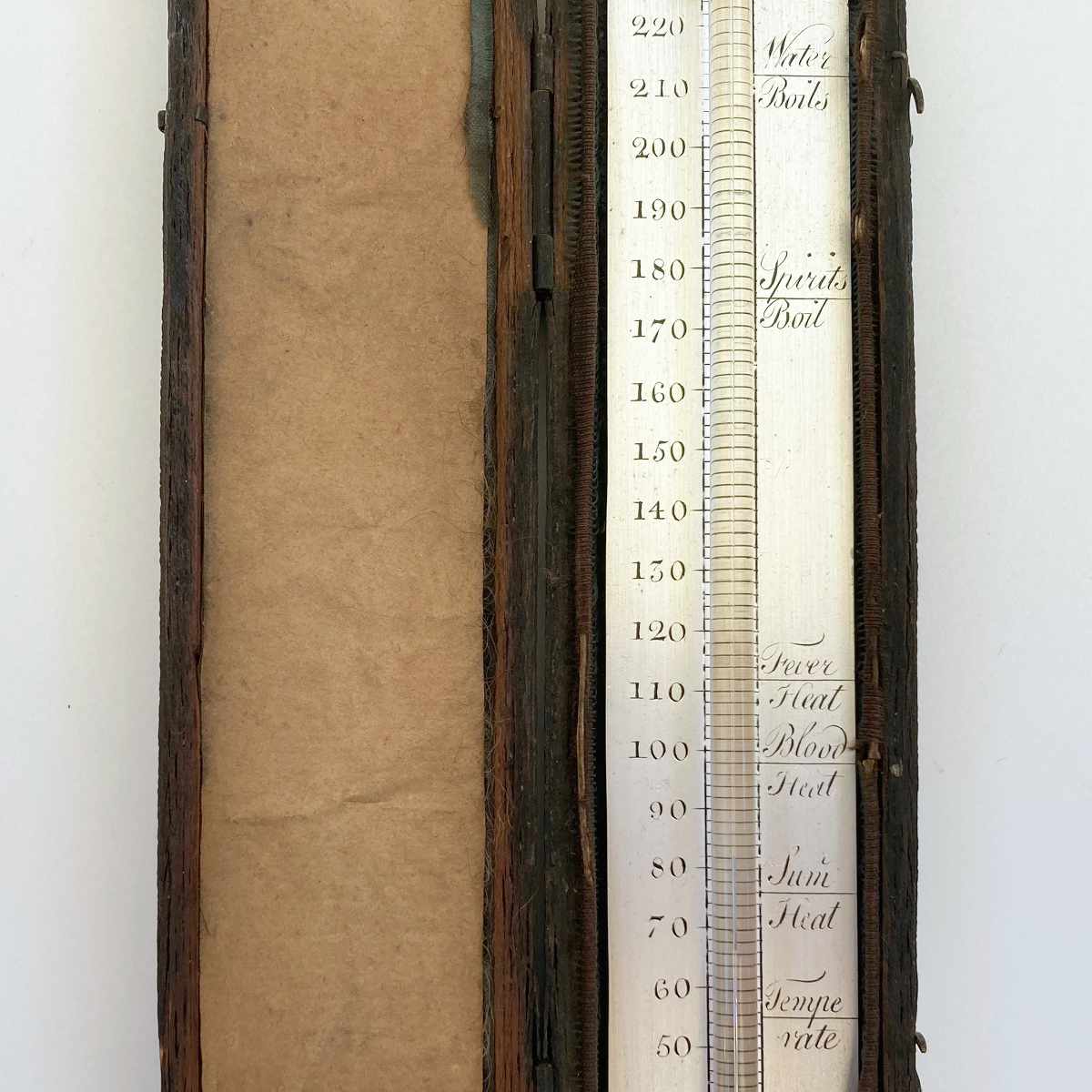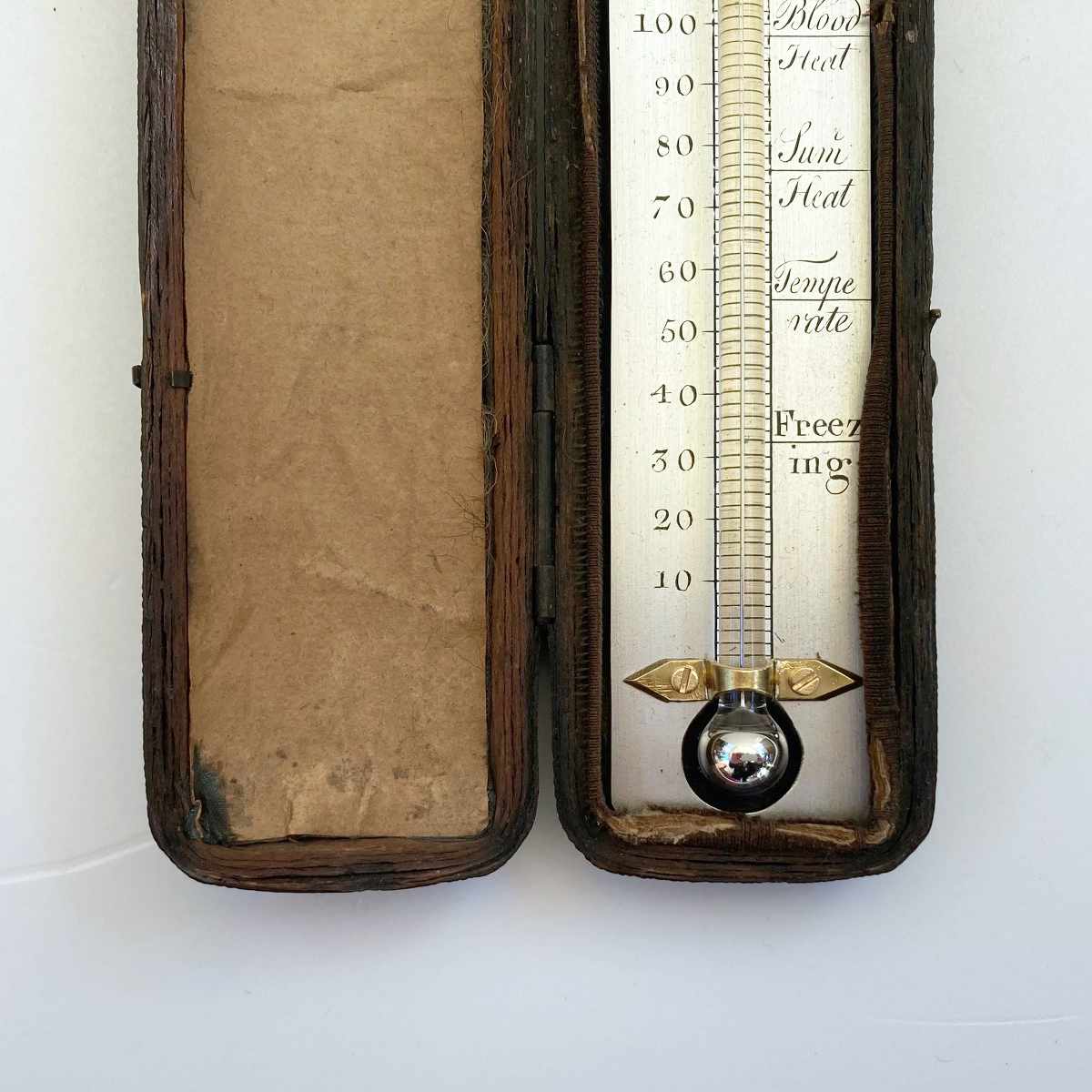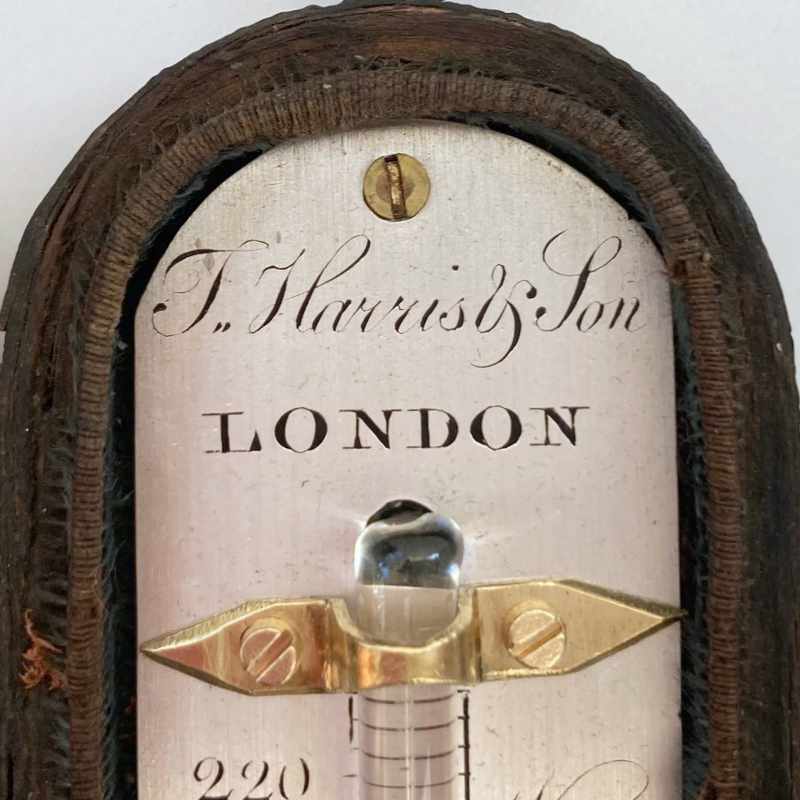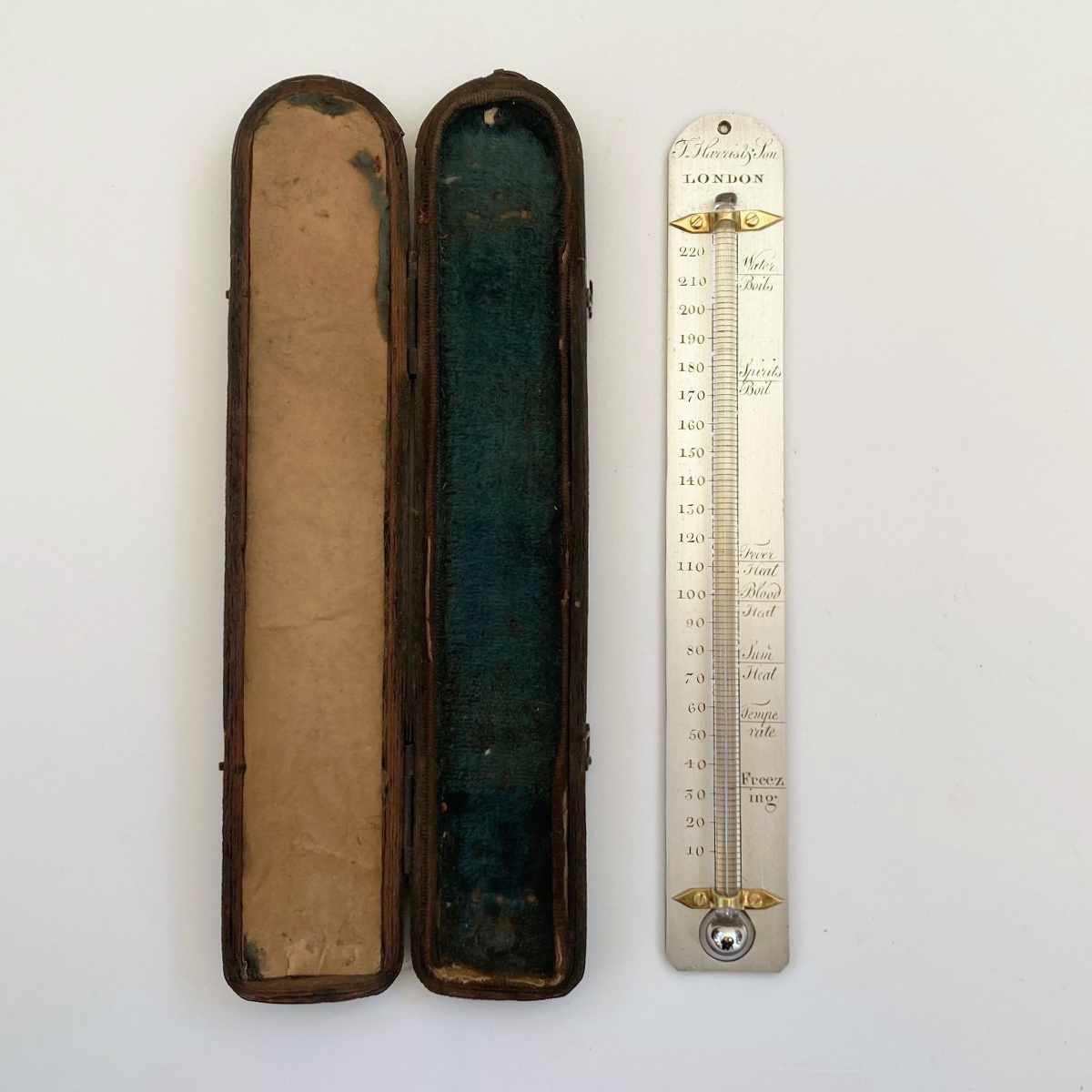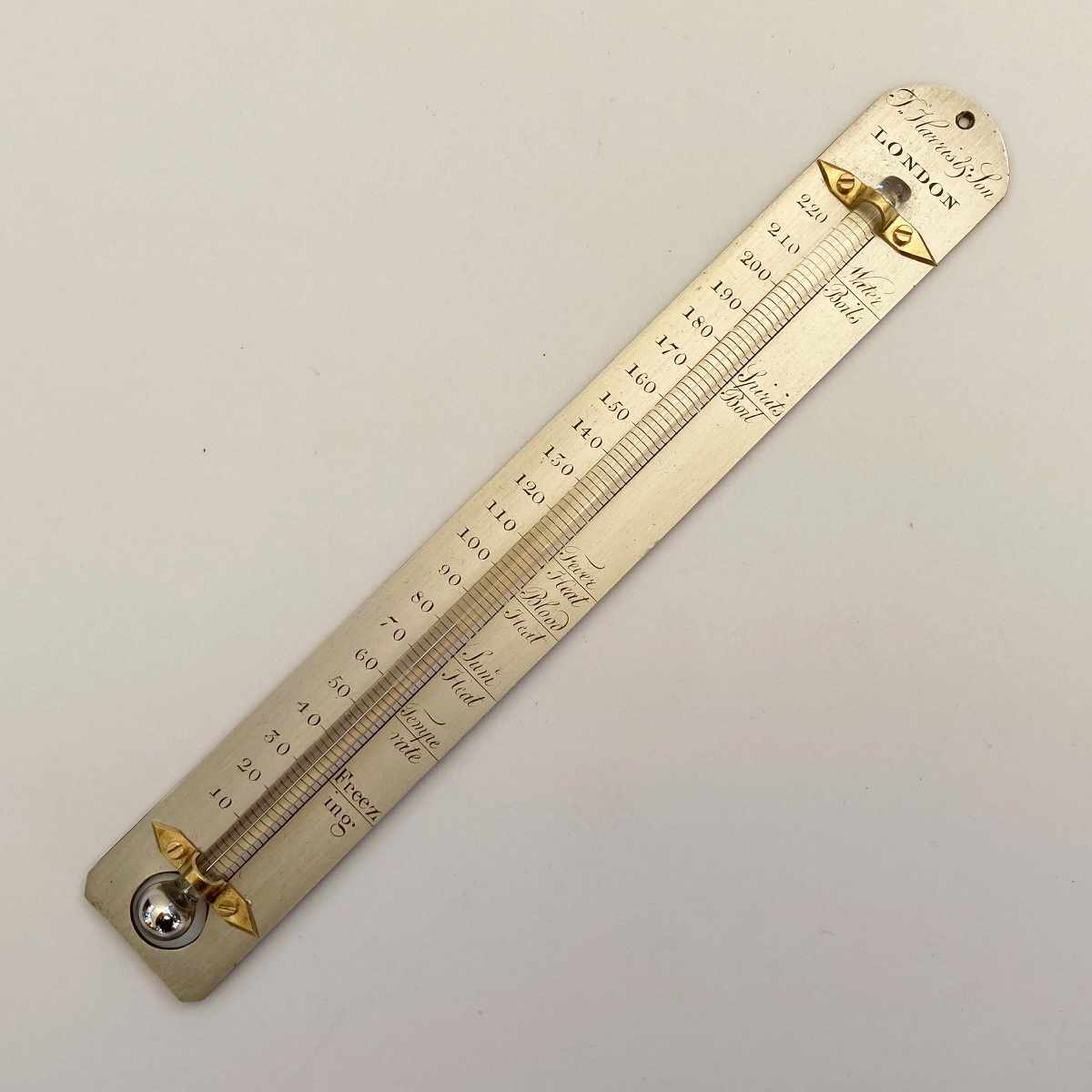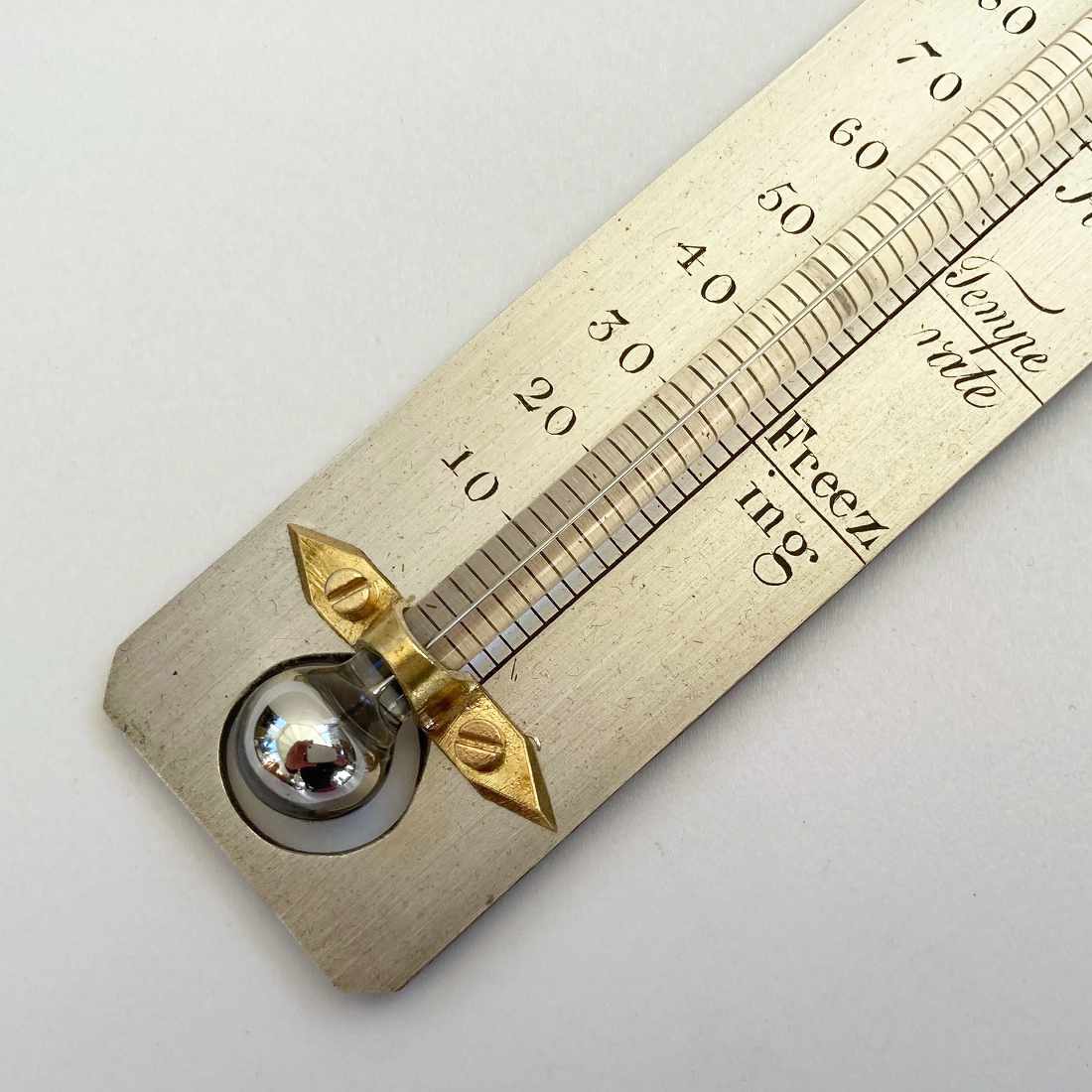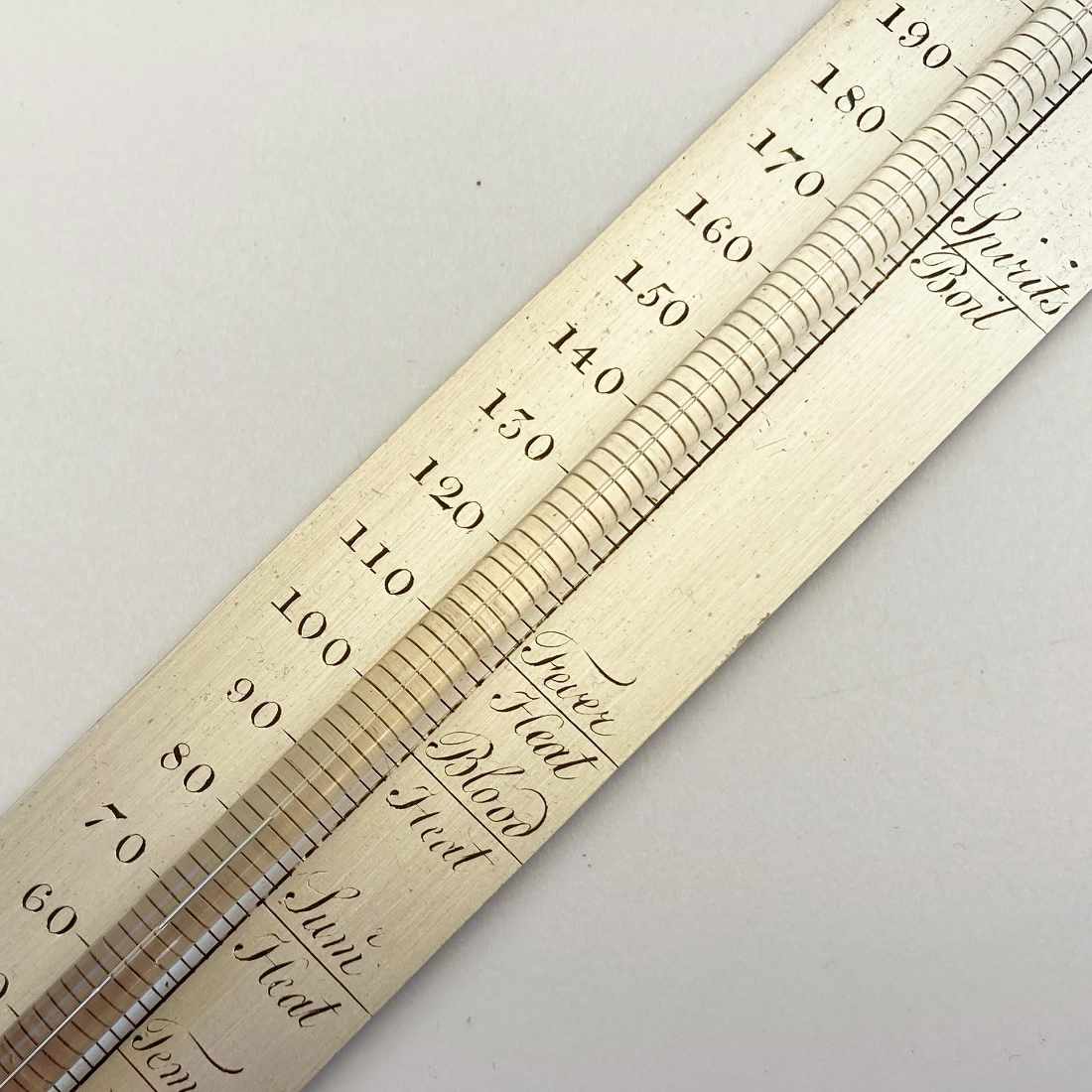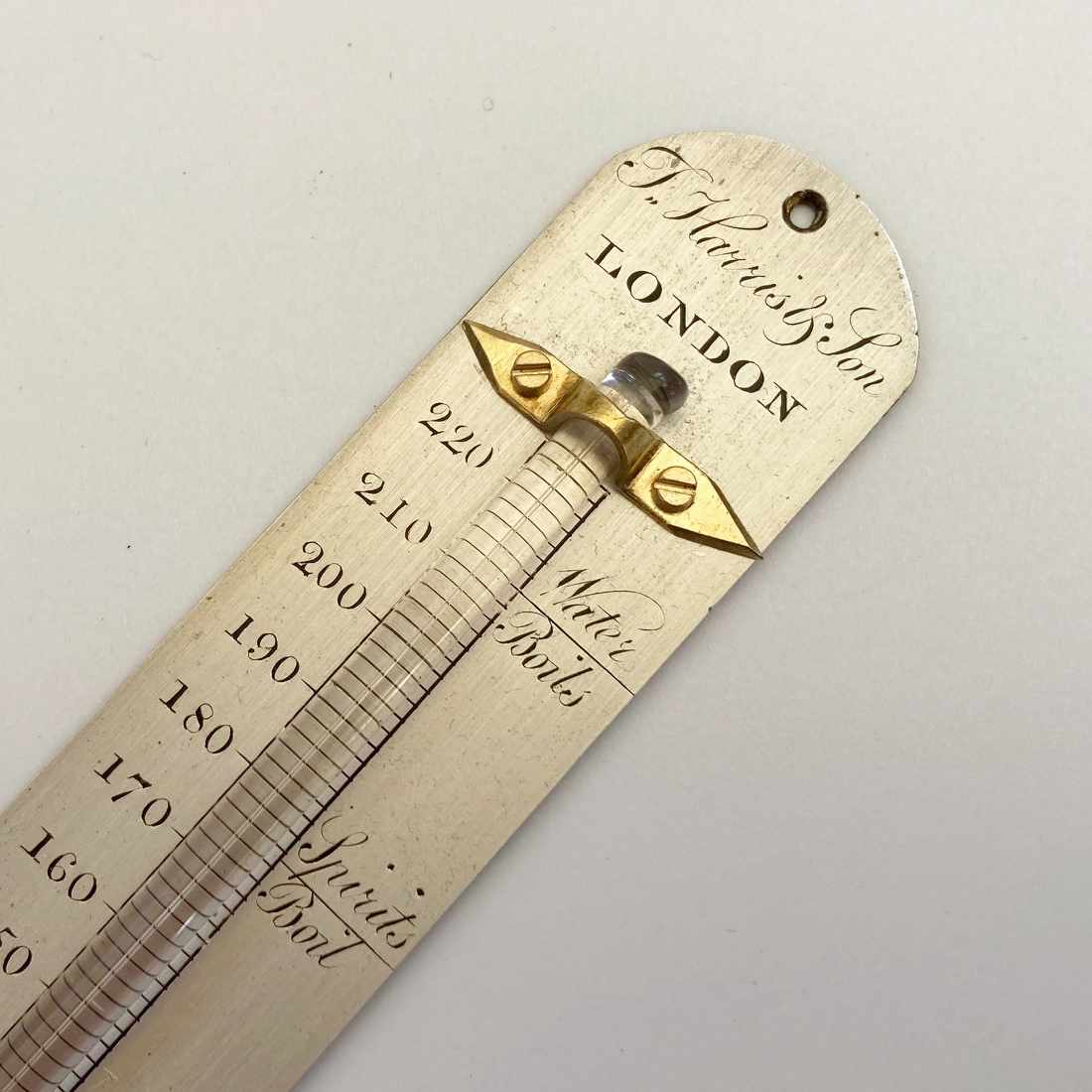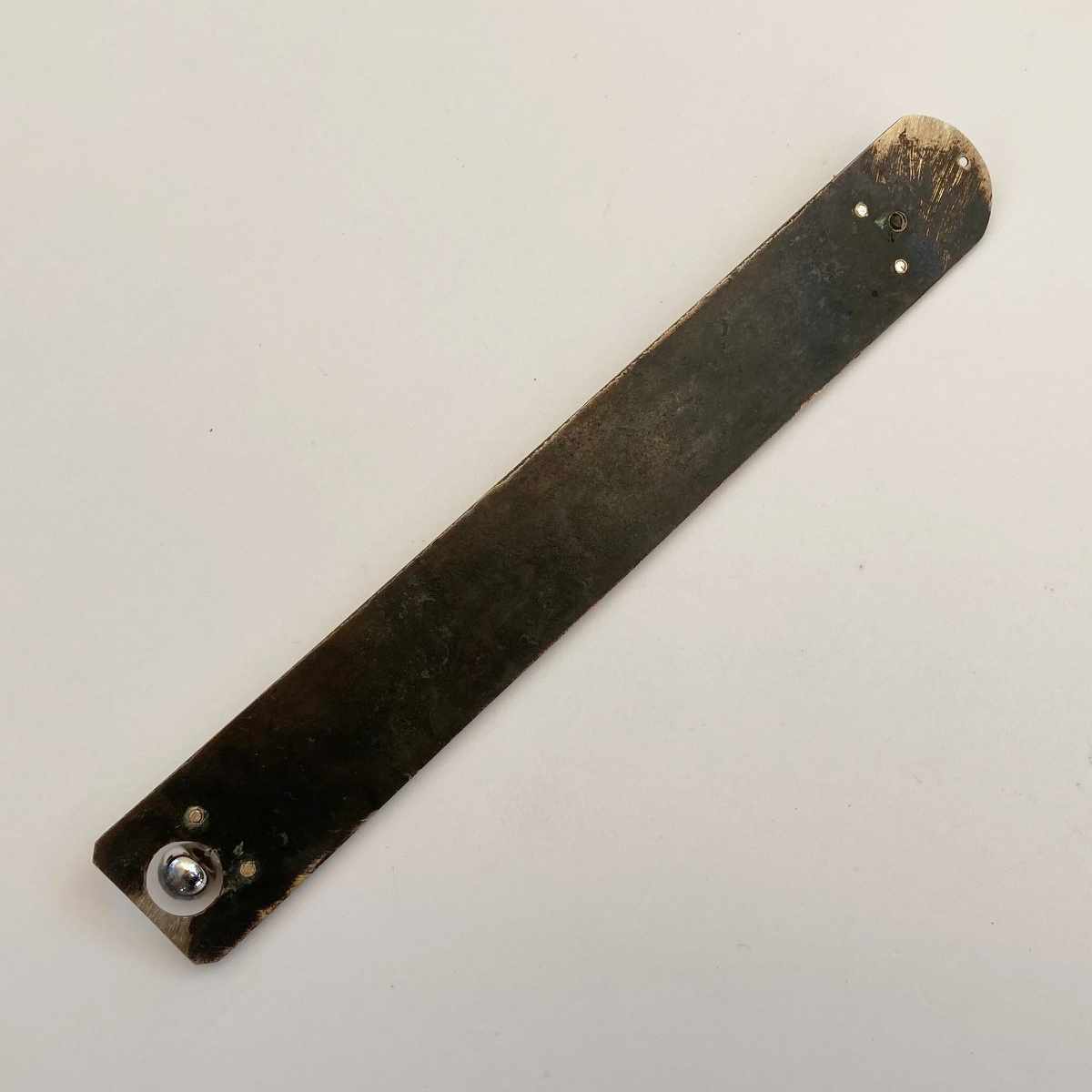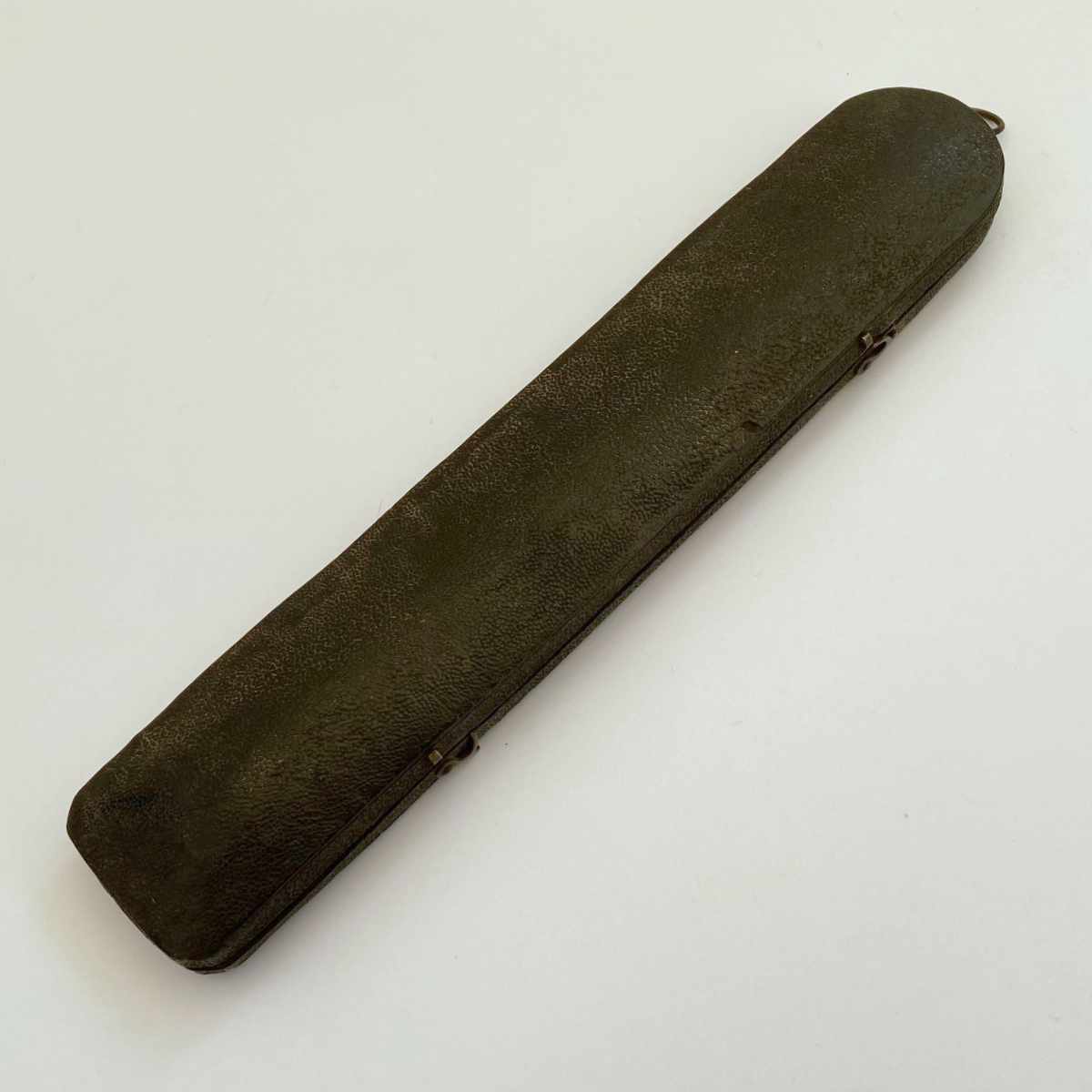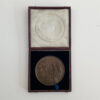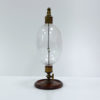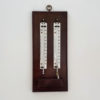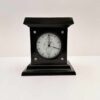William IV Leather Cased Travel Thermometer by Thomas Harris & Son, London
£395
William IV Leather Cased Travel Thermometer by Thomas Harris & Son, London
Dimensions
H: 21 x W: 4 x D: 2cms
Circa
1830
Maker
Thomas Harris & Son
Country of manufacture
UK and Ireland
Description
For sale, a William IV Leather Cased Travel Thermometer by Thomas Harris & Son, London.
Comprised of an 8-inch arched top silvered brass scale plate. The beautifully engraved Fahrenheit scale reads from 0 – 220 degrees and has indications for Water Boils, Spirits Boil, Fever Heat, Blood heat, Summer Heat, Temperate and Freezing. It is engraved to the prestigious maker, Thomas Harris & Son, London to the top of the scale and has a single hole to the top which fixes the thermometer to the case by means of a small grub screw. This could of course be removed and hung by a string outside of the case but the hanging ring at the case top shows that it was intended to be hung within its case.
The case is in super condition being covered with black leather to the exterior and has a velvet covering to the base. The lid is secured by means of two hook and eye catches.
The company of Thomas Harris & Son existed throughout the length of the Nineteenth Century although its origins date back to the end of the Eighteenth Century with the founder Thomas Harris Senior. Owing to the early demise of his tallow chandler Father, Harris was apprenticed to the London instrument maker, George Linnel in 1771 and with the reasonable assumption that he was aged about thirteen at this point, Harris was likely to have been born in circa 1758. His schooling would have been completed by the end of the 1770’s and although he remained in the trade, his activities for the remainder of the Eighteenth Century remain fairly uncertain but it’s likely that he became a jobbing instrument maker, manufacturing instruments or parts of instruments for more famous makers.
Thomas was evidently successful enough to have started out on his own account by the turn of the Century. This short early phase of trading was very quickly succeeded in 1802 by the change of name to Thomas Harris & Son which incorporated Thomas Harris Junior into the business and both were incorporated into the Spectacle Makers Guild and the Loriners Guild respectively in 1804. The company’s increasing success prompted a move to 52 Great Russell Street but it was sadly tainted by tragedy in 1808 with Thomas Junior being killed whilst on active duty as a Bloomsbury volunteer during a fire at The Covent Garden Theatre. Nevertheless, the business continued to prosper and his younger son William Harris joined the business in time to see the company being awarded a Royal Appointment in 1819 to The Prince Regent and to George IV upon his succession a year later.
At the end of the 1820’s, the company succeeded in taking over the business of the famous instrument maker Thomas Blunt (of Nairne & Blunt fame) with new premises at 22 Cornhill to complement the existing one at Great Russell Street. The split in premises also saw a split in the Father and Son partnership with William retaining the Cornhill premises in his own right. William’s future was thereafter fraught with disappointment. He suffered a bankruptcy in 1830 and although he managed to retain the business with a move to King William Street, he died thirteen years later in 1843 leaving his wife to seek charity from the Spectacle Maker’s Guild. His son was named William Dollond Harris which suggests some affinity with the hugely famous Dollond family but the exact nature of this relationship remains unclear.
Thomas Senior continued to trade until his death in 1831 at the age of seventy three and the records suggest that a Thomas P Harris continued to trade under the original company name and thereafter it remained under various iterations of family ownership until the end of the Century.
A fine example from a very prominent Nineteenth Century maker.
Circa 1830




